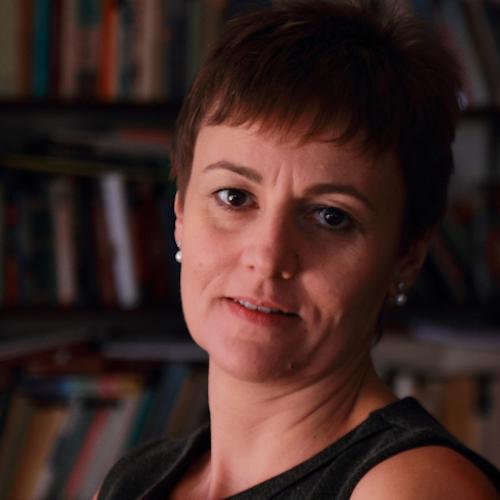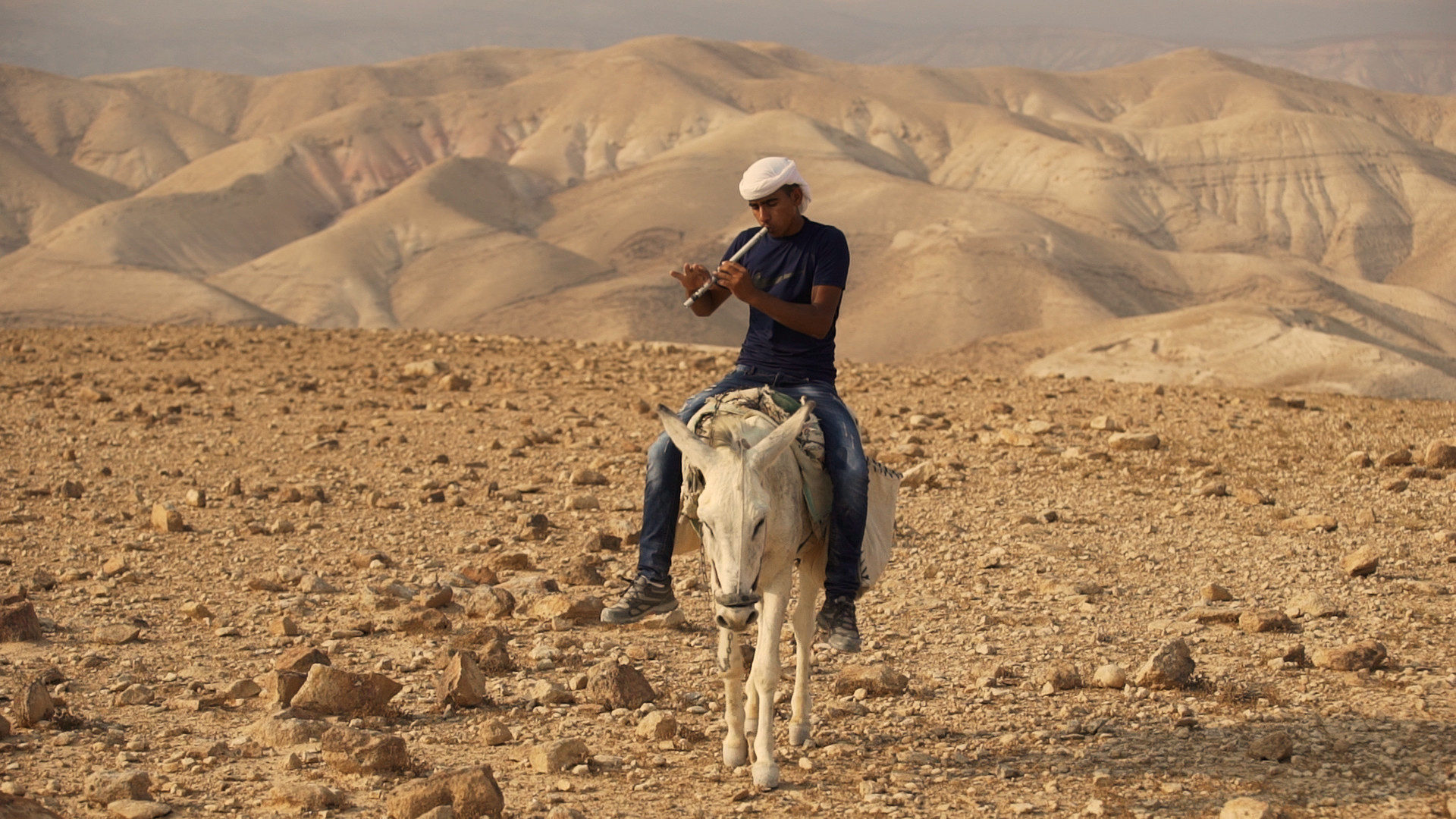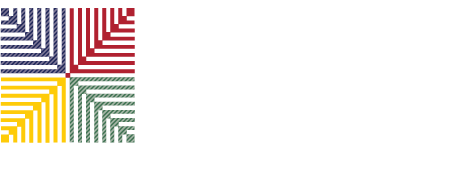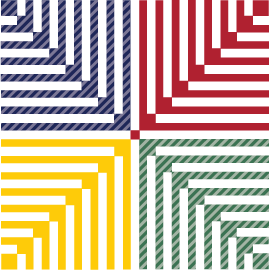

They Were Nomads, a documentary short co-directed by Cristina Maurelli and Carlo Concino, takes us into the little-known world of the indigenous Bedouin of Palestine. A proud people who try to remain solid and united despite the radical transformations they have been forced to undergo, the Bedouin suffer particularly from the loss of their identity, forced to become sedentary. The film is a unique testimony and chronicles a community that normally has no voice and a way of life that has be challenged by attempted erasure.
We spoke with Maurelli about the motivation for making the film and the filmmakers’ experiences with the Bedouin community that lives between Jerusalem and Jericho in the occupied West Bank.


BPFF: How did you get into filmmaking, and how did you come to make this film?
CM: Carlo and I are documentary filmmakers focusing on social issues, and we started making these types of films many years ago. We thought that documentary filmmaking is the best way to put people and issues in focus. When we started 30 years ago, documentary filmmaking was not so common, especially if you were not in the mainstream—for instance, if you did not work for television or have a lot of money, it was harder to make such films as an independent.
We always try to find uncommon issues that are more niche. I think that this documentary is in that vein. We wanted to talk about Palestine through different eyes. Bedouins are indigenous to Palestine, but in general they are a group of people that have been neglected more than others.
I think the film also tells the story of all nomads around the world. For stationary people, nomads are a danger, because they live in a different way—they are not stable; they want to move. Stable people like you and me—we don’t really understand this concept. Nomads in Palestine especially, because of the occupation, are stuck in place. For generations, the absolute sense of the Bedouins’ life was moving from one place to another. For such a people, being told that they now cannot move is very difficult.
BPFF: Can you tell us something about the Bedouin who live in the area and some of the issues they face?
CM: Generally, Bedouins in this area, even those in Jordan, are divided into different clans, so these clans traditionally moved around when there were no borders. The ones that we spoke with came from the Naqab, but being nomadic peoples, they traditionally moved all around the area. We spoke to one clan, but there are clans in other areas as well.
The issue now, of course, is that [on orders from the state], they cannot move from the places where they currently live. They have a village where they live in a stationary shelter, and they no longer live in tents. If they try to move to a different area, they are removed and forced out by the Israelis. This is a huge issue and affects them economically. And of course, many of these villages are not officially recognized by the state. This means that they don’t even get electricity or running water. Children have few options for school.
They live in the desert, which is a fantastic place, but it’s very tough to live there. In the film, you can see how travel is so difficult for them. Each morning, they must walk very far to reach the main highway, then they have to hitchhike or find some rare form of public transport. This makes going to school or finding any type of job very difficult. This has completely transformed their lives, even the relationships between the people inside the community.
BPFF: You just mentioned economics. When one thinks about the occupation, the first thing that likely comes to mind is the military occupation. But as the film mentions, economics plays a huge role as well.
CM: Yes, when we think of the occupation, we think of soldiers with arms. It is like that, of course, but that is not the only thing. If you cannot have freedom of movement, then you will not be able to earn the money that you need to live. There is the lack of jobs as well, so it is very difficult to find employment. It is extremely hard to go to school, and if you don’t go to school, you don’t have a future and cannot find a job. This issue is particularly common for women and girls, because that part of the community is weaker in social terms, so this issue of education is more prevalent for them.
Some organizations have decided to organize schools for the Bedouin in the villages, but this is not the case everywhere, so many girls cannot go to school, or they may have a school available, but because of the distance, their parents don’t want them to go. These are the types of issues that arise.
Then of course, there is problem with the cattle. The Bedouin cannot move their cattle, as they have traditionally done, from one place to another to graze, so they must feed them. Goats are also not a great source of income, because the community cannot use their produce (milk, cheese etc.). Women used to go to Jerusalem to sell their goods, and now of course they cannot do that either, because the state has closed the city to Palestinians from the areas where they live. If they cannot roam, then who will buy sell their products? So the Bedouin have had to overhaul everything about their way of life. Even if a young Bedouin man, for example, wanted to find a job in the West Bank, it would not be so easy, because they are discriminated against to some extent there as well.
BPFF: Can you talk a little bit on the discrimination that the Bedouin community faces?
CM: I think that borders are essentially a state of mind that becomes political. There are two dimensions, a political dimension and a philosophical dimension, and they collide. It is very difficult to know what the evolution of this culture will be, especially in Palestine, with the occupation being one of the biggest problems. I think discrimination comes from the fact that many people do not understand how they live. Many in the community in fact are trying to create new sustainable ways in which to secure their livelihoods. Since the onset of the pandemic, this has obviously become more difficult. However we filmed before the pandemic broke out, shooting in October 2019. While we were there, one of the subjects of the film was trying to open the village to tourists so that they could educate others on the way that they live, what they eat, their music, and all these kinds of things. I think this is a good opportunity.
BPFF: Speaking of the community trying to develop new opportunities to be sustainable, we noticed how resilient the Bedouins in the film were. All of the children seemed so committed to education, and many were going to college. The community even made a school from old tires.
CM: Their resilience is remarkable. This is a very proud people. They are fantastic; they are bold. In the film, you can see—they have these eyes full of energy, and they are very determined. They want their culture to survive, and they fight very strongly to resist and to continue their traditions. Of course, they cannot move, but they want very much for their traditions to survive and be shared with other people like tourists from around the world. They are of course trying to find a source of income. Cattle is one of those, but, as I have said, there are a lot of problems with this. There are other things, such as handicrafts that women produce with the help of outside organizations. They use products from the area, such as wood and wool, and produce things such as jewelry. Vento Di Tierra, an NGO that we partnered with during the making of the film, is one of the organizations that help this community. So one of the aspects of resiliency is through these new economic projects.
As far as the schools, this is one of the places I have been where education is so important. I have travelled quite a lot, but in this village, they are all really convinced that education can change the world.
Obviously, they cannot build schools, because the villages themselves are illegal, so they decided to put up this school made of tires. It is a school built with no foundation (thereby being not legally a building, getting around certain restrictions). So, it is always under threat. Even this past summer they had problems with the Israeli army.
In the school, there are many children, including many girls who go to school every day, and they have a lot of teachers. They started with one grade and now they have more than ten. Many children come from all around, not just from Khan al-Ahmar, where the school is located. They come to school, they stay all day; they eat there. It is a great place, and it shows how education is one of their main points of resilience. It is one of the ways the community indicates that no matter what you do to us, we will stay here, and we want to continue.
BPFF: Can you talk about your filming process and the technical aspects of making the film?
CM: We had a fixer and some facilitators from Bethlehem, and we had contact with an Italian NGO that I mentioned earlier, Vento Di Tierra. We got in touch with them many months before, we talked and decided it would be very interesting to make a documentary there. They helped us to find all the contacts to get into the village, because not all Bedouins want to talk with the media.
We found these four stories that are in the film. They include different generations, both male and female. We tried to find a balance between the stories and to give ample space in the film to women—three different women of different ages. Traditionally, the women marry very early and have many children. This is one of the problems in seeking to balance their traditional style of life with the new possibilities. If you have three children and they attend school for twenty-two years, including university, it is not so easy for these families.
We tried to look at some of these perhaps controversial issues—issues that are not just controversial for an international audience, but also for Palestinians themselves. I think the film gives people a good opportunity to discuss many of them.
BPFF: In the film you talked to different generations of women. For example, there is an elderly woman who has not been able to make her own choices in her life and has been limited to simply trying to make ends meet; you contrast this with the young girl who wants to be a photographer. It showcases how important education has become in creating new opportunities.
CM: The old woman you are talking about, she even talked in a different way, even our translator had difficulties in translating what she had to say because of her dialect, so that showcases the transformation that has taken place. Education is the key, and the old woman had no other options. She could not have even the idea that change is possible; there were no other possibilities like this for her. With the younger generation, they are trying to find different ways to stay relevant in a world that clashes with their traditions—to find a way to succeed while also holding on to these traditions.
The girl who wants to be a photographer wants to see the world and narrate the world through her own eyes. I found this a good metaphor to talk about the future of these people. To have the possibility of seeing the world, but also of telling their story to others.
BPFF: How did the pandemic affect the rollout of this film and your other work?
CM: Well, I live in Italy so we were in the middle of the tempest. It of course affected a lot. We finished the film in February when the pandemic started here. We were ready to show the film and organize things around it. So we had to stop everything. Covid-19 has affected our job in general, and at this moment we do not have any projects, because we can’t go abroad. We would like to show the film in Palestine, but we cannot, because the situation there now is a little bit tough. We don’t know even in this village what exactly is going on. So we will see. Se would like to show it to everyone.
BPFF: Well we glad that we can show it virtually here at BPFF.
CM: Thanks so much, we are honored to show our film at BPFF, and we hope that a lot of people online will see the film and get in touch.
BPFF: Thanks for speaking with us. Best of luck.
They Were Nomads screens online October 16-25 together with Walled Citizen. View the full festival program and buy tickets here.

